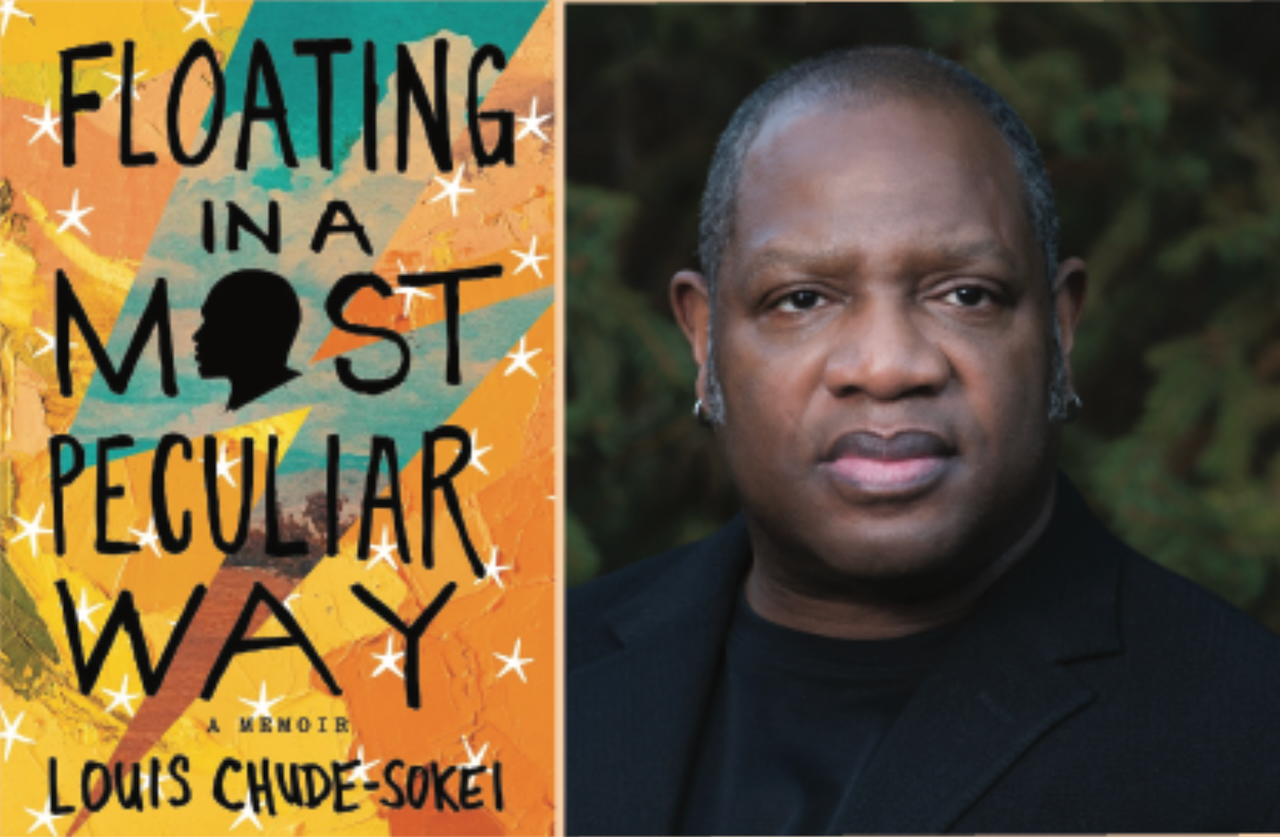Louis Chude-Sokei shares memoir and scholarship on the cultures of the Black diaspora
Robert Carson — Associate Director, Tanner Humanities Center — April 3, 2025
 Author and scholar Louis Chude-Sokei explored the complexities of Black identity across
the African diaspora at a Tanner Conversation event at the Salt Lake City Public Library
on April 1. Chude-Sokei is Professor of English, George and Joyce Wein Chair in African-American
and Black Diaspora Studies, and Director of the African-American and Black Diaspora
Studies Program, at Boston University.
Author and scholar Louis Chude-Sokei explored the complexities of Black identity across
the African diaspora at a Tanner Conversation event at the Salt Lake City Public Library
on April 1. Chude-Sokei is Professor of English, George and Joyce Wein Chair in African-American
and Black Diaspora Studies, and Director of the African-American and Black Diaspora
Studies Program, at Boston University.
The conversation with Tanner Humanities Center Director, Scott Black, examined Chude-Sokei’s 2021 memoir Floating in a Most Peculiar Way and his scholarly work on diasporic culture. Vincent Pecora, Professor of English and interim chair of Linguistics at the University of Utah, introduced the event by contextualizing Chude-Sokei’s work in larger cultural debates. In particular, Chude-Sokei’s provocatively titled book, The Last “Darky”: Bert Williams, Black-on-Black Minstrelsy, and the African Diaspora, compels a more nuanced and counter-intuitive grasp of Williams’s early 20th-century appropriation of blackface theater; Williams’s subtle, multilayered irony earned him a level of fame unmatched for a Black American performer at the time. Likewise, in The Sound of Culture: Diaspora and Black Technopoetics, Chude-Sokei makes the case for a broader understanding of Black sound culture’s resonances and foreshadowing across a range of genres, including Victorian science fiction, artificial intelligence, and dub.
Central to Chude-Sokei’s scholarship is the detachment and unbounded hybridity of Black diasporic cultures. Their internal ambivalences and contradictions are, in his view, just as constitutive of cultural identity as the Black–white antagonisms more widely recognized in the American academy. As he explained to the audience, his story is not simply about being Black or being an immigrant, but about “always being an immigrant to multiple nations which have multiple types of Black people who define Blackness in very different ways.” While popular discourse often imagines Black communities in solidarity, Chude-Sokei emphasized that different Black diasporic groups “might be as different as Korean and Japanese,” with distinct histories, languages, and cultural practices.
His memoir, Floating in a Most Peculiar Way, traces his journey from Nigeria to Jamaica and eventually to South Central Los Angeles. A significant portion of the discussion centered on performances of identity. Chude-Sokei read passages about his childhood in Jamaica, where he and his cousins “practiced being Black Americans” by mimicking accents from American television. Later, when living in America, his aunt instructed his mother to “keep his accent strong” so that whites would “hear him before they see him” and distinguish him from African Americans. The memoir’s title comes from David Bowie’s 1969 “Space Oddity,” which he first heard as a child in a refugee camp in Gabon, during the Nigerian Civil War.
In their discussion, Scott Black highlighted how accent and language function as markers of authenticity throughout Chude-Sokei's work. According to Chude-Sokei, cultural authenticity is “a very sophisticated kind of performance” that often begins with imitation before developing into something distinctive. In their discussion on sound culture, he observed that in contemporary music, from Afrobeats to dancehall to hip-hop, the underlying technology and software creates similar sonic landscapes, making the spoken or sung vernacular the marker of identity.
Chude-Sokei pointed to the hesitation of American culture, including American academic culture, to examine the complex negotiations of Black diasporic cultures directly. He also noted that his book on the groundbreaking Black American performer Bert Williams, The Last Darky, is suppressed by well-meaning online algorithms because of its title and cover photo of Williams in blackface: a compelling story which was once erased by anti-Black racism is again erased by an intellectually limiting approach to anti-racism.
The evening concluded with audience questions about immigrant identity, the legacy of Nigerian identity in Chude-Sokei's work, and the balance between local identity and broader cultural affiliations. Throughout the conversation, Chude-Sokei emphasized his interest not in fixed identities, but in their unexpected transitions: “How do you study becoming another thing? How do you study and map becoming something else that may have no name yet?”
